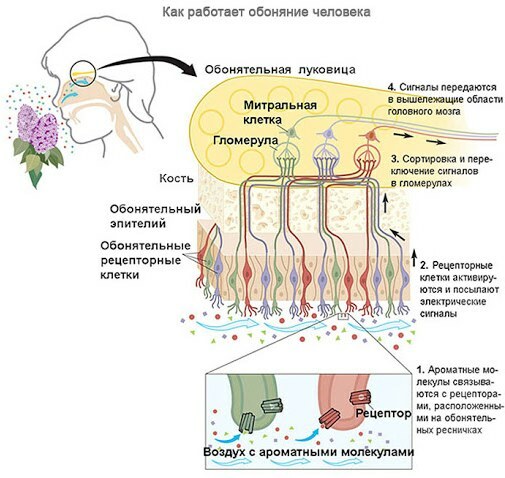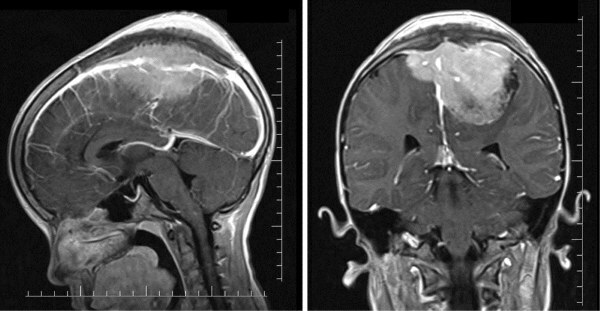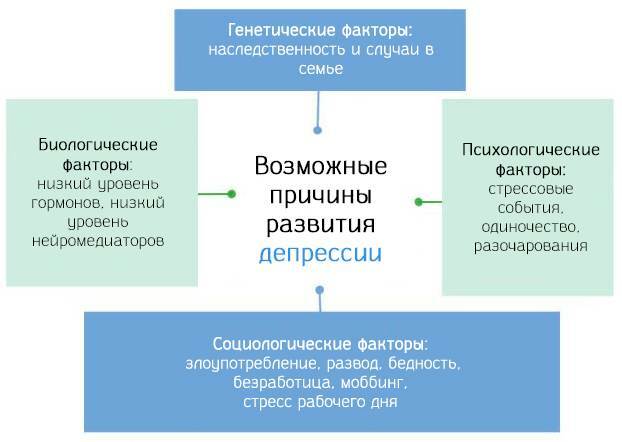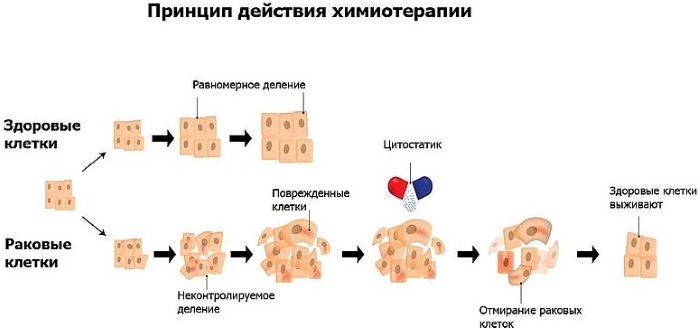Aggravation sense of smell in women (hyperosmia) is an increased sensitivity of receptors responsible for the perception of odors. The main reasons for the occurrence of olfactory disorders are short-term changes in hormonal levels, or chronic diseases of the internal organs and life support systems of the body.
Most often, this symptomatology occurs in women who suffer from mental, endocrine and neurological diseases. Moreover, most pathologies of this type occur in a latent form, and their detection requires a comprehensive diagnosis.
Aggravation of smell periodically occurs in women of all age groups, regardless of their occupation, social status and region of residence. If hyperosmia is of a short-term nature, and its duration does not exceed 2-3 days, then in this case there is no significant cause for concern. It is much worse when olfactory disturbances become permanent.
In such a situation, hyperosmia becomes a symptom of an existing ailment. The cause of olfactory disorders can be established only with the help of a high-quality ENT examination, hardware visualization of the structure of the brain, olfactometry. Treatment of hyperosmia is prescribed only after the final diagnosis has been made.
Record content:
-
1 Possible reasons
- 1.1 Pregnancy state
- 1.2 Premenstrual period
- 1.3 Toxic goiter
- 1.4 Migraine
- 1.5 Diseases of the brain
- 1.6 Complications of a previous infection
- 1.7 Schizophrenia
- 1.8 Depression state
-
2 Treatment methods
- 2.1 Valerian extract
- 2.2 Glycine
- 2.3 Peony tincture
- 2.4 Chemotherapy
- 2.5 Surgery
- 3 Smell video
Possible reasons
There are many reasons that can trigger a sudden exacerbation of the sense of smell. At the same time, a woman begins to feel even the most subtle aromas, and initially pungent odors become even more saturated. In the latter case, the effect of disgust and intolerance to spirits, the presence of certain dishes or foodstuffs may occur.
Pregnancy state
Aggravation of smell (the reasons in women may be associated with hormonal changes in the body) occurs during the active phase of fetal formation. During gestation, the organs of the endocrine and reproductive systems begin to work to ensure the life of the mother and the development of the child.
Against the background of a short-term change in hormonal balance, hypersensitivity to environmental odors may appear. The development of hyperosmia can be one of the first symptoms of pregnancy. A similar state of the body is accompanied by the periodic occurrence of nausea, intolerance to sharp aromas, and loss of appetite.
During pregnancy, exacerbation of the sense of smell is most often expressed in an aversion to the smell of fuel, engine oil, food combustion, the sensation of which may remain even in the room, when in fact the effect of unpleasant odors is already discontinued.
Previously loved perfumes seem too harsh, provoke nausea, and can also cause headaches. Most women who are in a state of pregnancy refuse to use cosmetics, as they provoke an exacerbation of hyperosmia.
A distinctive feature of the exacerbation of the sense of smell in women during pregnancy is that the intolerance of environmental odors is accompanied by similar changes in taste. The aromas of familiar and favorite food become not only unpleasant, but can also cause a gag reflex.
Such symptoms are considered physiological, and also not dangerous for the body of the expectant mother. Hyperosmia, accompanied by migraine attacks, dizziness, impaired coordination of movements, is a sign of a serious health disorder that requires examination by a doctor.
Aggravation of the sense of smell, which is caused by the state of pregnancy, completely disappears in the postpartum period. This is facilitated by the normalization of the hormonal background of a woman, the restoration of the physiological functions of the endocrine, nervous and reproductive systems.
If signs of hyperosmia persist even after the birth of a child, then in this case, the presence of a concomitant disease can be suspected. In such a situation, it is recommended to consult a general practitioner for additional advice.
Premenstrual period
Aggravated sense of smell (causes in women may be associated with the characteristics of their psycho-emotional state), which is caused by the impact of this cause, occurs 2-3 days before the expected start date menses. Symptoms of hyperosmia disappear immediately after the first bleeding is released.
Then the work of the receptors of the nervous system responsible for the perception of smells is normalized, and the woman ceases to feel aversion to the aromas of the environment. Hyperosmia caused by the premenstrual period is inherent in girls of the emotionally labile type, who are prone to sudden changes in mood, and are characterized by increased tearfulness.
Aggravation of smell during the premenstrual period is most often accompanied by an individual intolerance to the aroma of flowers, certain dishes and food, as well as the smell of gasoline, varnish, acetone. A few days before the onset of menstruation, some women try to avoid using public transport.
This is due to the fact that the smell of exhaust gases, the sweat of people in a crowded bus, becomes even more pronounced. In such a situation, the appearance of a feeling of nausea and the urge to vomit is possible.
Hyperosmia, which appears due to the onset of the premenstrual period, is due to the influence of the following factors:
- short-term changes in hormonal balance;
- inflammatory diseases of the female reproductive system;
- changes in the work of the endocrine glands;
- neuropsychiatric disorders that are exacerbated in a given period of time.
Women who, a few days before menstruation, begin to experience an exacerbation of smell, should be examined by a gynecologist or endocrinologist. Quite often, such symptoms are the first sign of latent diseases of the female body.
Toxic goiter
Aggravated sense of smell (causes in women can be caused by a change in receptor sensitivity) is due to a concomitant thyroid disease. The increased functional activity of this organ of the endocrine system leads to the synthesis of an excess amount of hormonal substances.
A woman develops thyrotoxicosis, the early stages of which remain almost invisible. In most cases, hyperosmia caused by hyperfunction of the thyroid gland is accompanied by a gradually growing toxic goiter of a diffuse type.
In this situation, the main reason for olfactory disorders is that an increased concentration of thyroid hormones causes the activation of receptors in the nasal mucosa. The latter are responsible for identifying environmental odors. In this regard, a woman has an acute intolerance to all sharp aromas.

Aggravation of the sense of smell due to the presence of a toxic goiter of the thyroid gland is expressed in a particular aversion to the following types of odors:
- medications;
- fuel and products of its combustion;
- food additives to enhance the taste;
- food products with a pronounced aroma.
Women suffering from thyrotoxicosis complain of a constant feeling of fetid odors at home and on the street. Unpleasant odors can haunt them even after the source of their distribution is no longer in the environment.
It is important to remember that a toxic goiter can cause not only a sustained exacerbation of smell, but also provoke a change in the functions of taste buds. You may develop an absolute aversion to previously favorite foods.
Migraine
Migraine is a pathological condition of the body, which is expressed in the form of attacks of severe and prolonged headache. Moreover, in most cases, hyperosmia appears several hours before the main symptomatology. The simultaneous manifestation of headache and exacerbation of the sense of smell occurs in 3.5% of people with migraine.
Just before the onset of an attack, a woman begins to feel the presence of even the weakest aromas, which gradually increase in proportion to the pain. Exposure to even subtle odors leads to even more severe migraine attacks.
In severe cases, migraine with hyperosmia is accompanied by nausea, severe vomiting, after the completion of which there is no relief. The persistence of signs of olfactory disturbances is observed even after the cessation of the attack of headaches.
According to medical statistics, in 60% of people, an exacerbation of smell is a predisposing factor for the further development of migraine. In such a situation, the only solution to the problem that has arisen is to minimize contact with harsh aromas.
Women who are susceptible to this pathology are advised to exclude the use of perfumes and other cosmetics with a pronounced odor.
Diseases of the brain
Aggravated sense of smell (causes in women may be associated with dysfunction of the cerebral cortex) is a fairly common pathology among women with concomitant diseases of the central nervous system.
Damage to certain centers in the brain responsible for the perception and processing of information about odors environment, leads to the fact that even the most subtle aromas cause the effect of an individual intolerance.
At the same time, there is a gradual increase in pathological symptoms. The most pronounced aversion arises for the smells of herbs, medicines and flowers.
Neurological diseases that cause an exacerbation of the sense of smell are accompanied by the following symptoms:
- decreased visual acuity;
- periodic dizziness;
- sudden loss of consciousness;
- impaired coordination of movements.
The table below shows the main types of diseases, the development of which leads to the appearance of persistent and prolonged hyperosmia.
| Name of the disease | Characteristics of pathology |
| Astrocytoma | Astrocytoma of the brain is an intracerebral tumor of the neuroepithelial type. This type of extraneous neoplasm can have a different level of malignancy. The proliferation of astrocytoma is accompanied not only by an exacerbation of the sense of smell, but also by speech disorders, loss of appetite, and behavioral changes. This disease is considered life-threatening. |
| Meningioma | Meningioma is an extraneous neoplasm in the structure of the brain, which has a benign nature of origin. This type of tumor rarely acquires signs of an oncological process. The development of meningioma occurs from the arachnoendothelial cells of the dura mater of the brain. Much less often, the pathological process affects the plexus of the blood vessels.
|
| Multiple sclerosis | Multiple sclerosis is considered a severe pathology of the central nervous system, the course of which is accompanied by demyelination of the brain channels responsible for the conduction of nerve impulses. Areas with focal tissue damage are filled with sclerotic plaques. This type of disease causes severe hyperosmia, but can also provoke movement disorders, a decrease in the functions of the optic nerve, and changes in a neuropsychic nature. The detection of multiple sclerosis is possible only with the help of the MRI diagnostic method. |
| Encephalopathy of the discirculatory type | Dyscirculatory encephalopathy is a disease of the central nervous system that is characterized by extremely slow progression. The main symptom of this ailment is considered to be diffuse, or focal destruction of the blood vessels responsible for the nutrition of the brain. In the affected area are small arterioles and arteries. |
The above pathologies of the brain cause not only a sustained exacerbation of the sense of smell, but are also characterized by a whole range of concomitant symptoms. Therefore, if you find signs of hyperosmia, combined with dizziness, migraine attacks, impaired coordination of movements, you should immediately consult a neuropathologist.
Complications of a previous infection
Some types of infectious diseases can cause the development of hyperosmia. Such symptoms are most often encountered by women who, shortly before an exacerbation of their sense of smell, have suffered tick-borne encephalitis, Lyme disease or typhus.
In this case, the main cause of hyperosmia is that the causative agents of the above diseases can cause dysfunctional disorders of the central and peripheral nervous system.
Aggravated sense of smell applies to all types of odors, but most often this condition is of a short-term nature. As the body recovers, the work of local receptors and brain centers is normalized.
Schizophrenia
In schizophrenia, signs of hyperosmia are the result of olfactory hallucinations, when a woman senses the presence of pungent odors that do not actually exist. In this case, there may be a permanent sensation of certain types of aromas.
For example, if the patient is absolutely sure that the unpleasant smell of feces, combustion products or rotting of the body remains in the air all the time. This state of mind can be accompanied by attacks of panic and unreasonable fear. Another exacerbation of the sense of smell occurs shortly before the onset of other clinical symptoms of schizophrenia.
Depression state
Medical practice shows that many women in a state of deep depression have an exacerbation of their sense of smell. Symptoms of hyperosmia are manifested in a constant sensation of an unpleasant odor, the source of which may be one's own body, or household items.
Moreover, in most cases, unpleasant odors inside the house are completely absent, or they are not pronounced. Depression, which has similar symptoms of manifestation, may be the first sign of the development of more severe neuropsychiatric diseases.
Treatment methods
An exacerbation of the sense of smell, which has arisen due to a state of pregnancy or in the premenstrual period, does not require treatment.
If, in the process of diagnosis, concomitant diseases provoking hyperosmia were found, then, depending on the type of pathology, the attending physician prescribes taking medications with a sedative and nootropic effect, undergoing a course of psychotherapy, surgical and antitumor treatment.
Valerian extract
Valerian extract is an herbal sedative prescribed for women who have exacerbation of the sense of smell is caused by nervous overstrain, frequent stress and unstable psychoemotional condition.
The dosage regimen for this medication involves taking 1 tablet 3 times a day. The duration of therapy is determined by the doctor. Valerian extract is approved for use by women in the 2nd and 3rd trimester of pregnancy. The average cost of this medication is 21 rubles. per pack of 50 tablets.
Glycine
Glycine is a nootropic agent that improves the functions of the central nervous system, normalizes cerebral circulation and the performance of peripheral nerves. This medication also has a mild sedative effect and improves mood.
Glycine is taken 1-2 tablets 2 to 3 times a day, regardless of the diet. The duration of treatment is determined by the doctor. To achieve a stable and long-term effect, it may be necessary to undergo 2-3 courses of therapy. The average cost of this drug ranges from 32 to 43 rubles.
Peony tincture
Peony tincture is a sedative herbal remedy, the main purpose of which is to normalize the functions of the central and peripheral nervous system. This drug is made on the basis of alcohol, which should be taken into account for patients who are contraindicated in the use of ethanol.
The dosage regimen with this medication provides for taking 30-40 drops 3 times a day. The duration of the therapeutic course is 25 to 30 days. On the recommendation of the attending physician, repeated intake of peony tincture can be resumed after a 10-day break. The average cost of the drug is 10 rubles. per bottle with a capacity of 25 ml.
Chemotherapy
Treatment with chemotherapy and cytostatic agents is indicated for women who have signs of hyperosmia due to tumor lesions of the brain. In this case, extraneous neoplasms are of a malignant origin.
The selection of medicines with chemotherapeutic and cytostatic properties is carried out individually by an oncologist. The duration of therapy depends on the dynamics of tumor shrinkage and brain tissue repair. On average, 2-3 courses of chemistry may be required during the year, depending on the type of extraneous neoplasm and the degree of its malignancy.
Surgery
Therapy of hyperosmia using the method of surgical intervention involves the removal of benign and oncological neoplasms that are localized in the cerebral cortex. For example, if a pathological exacerbation of the sense of smell is caused by the presence of a meningioma.
In this case, a team of surgeons removes the tumor, the growth of which has caused impairment of the functions of certain parts of the brain that are responsible for identifying the smells of the environment. Surgical intervention takes place under the influence of general anesthesia. The average duration of surgery is 2 to 6 hours.
Aggravation of the sense of smell in women of different age groups can be caused by biochemical changes in their the body, or is the cause of acquired diseases of the endocrine, nervous or reproductive systems. The short-term appearance of signs of hyperosmia is possible during pregnancy, as well as a few days before the onset of menstruation.
The constant persistence of symptoms of heightened sense of smell indicates the development of a pathological process, the elimination of which requires a comprehensive examination with the appointment of further treatment. Hyperosmia therapy involves taking medications with sedative and nootropic effects.
Smell video
The most interesting facts about the sense of smell:



